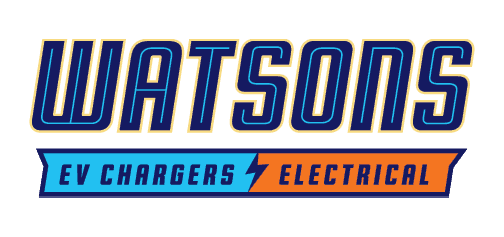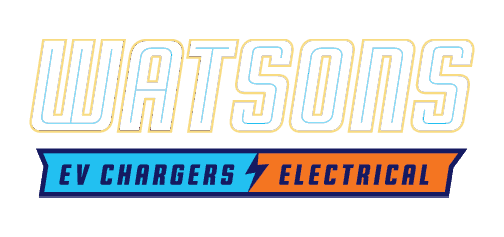How the Inflation Reduction Act Rewards Electric Vehicle Home Charger Installation
If you recently made the move to an electric vehicle or are considering going green by purchasing an electric car, you are probably already aware of the various incentives and tax credits for EVs. Did you know there are also tax rebates for electric vehicle home charger installation? That means you can add the convenience and practicality of electric vehicle charging stations to your home or business and reap the benefits of a generous tax rebate plan under the new Inflation Reduction Act (IRA).
Here’s what you need to know about how the IRA rewards electric vehicle home charger installation.
What Is the Inflation Reduction Act (IRA)?
President Biden signed the IRA into law on August 16th, 2022. The over-arching and monumental legislation aims to reduce the USA’s dependence on carbon emissions, expand Medicare access, and lower prescription drug costs. The most significant part of the bill offers various savings and tax rebates to incentive people to battle climate change through newer, more efficient technologies. For example, home and business owners can earn rebates for making efficiency upgrades to their properties:
Up to $1,750 for a heat pump water heater
Up to $8,000 for a heating/cooling heat pump
Up to $840 for an electric stove or cooktop
Up to $840 for a heat pump clothes dryer
Up to $4,000 for a new electric panel or smart panel
Up to $1,600 for upgraded insulation
Up to $2,500 for updated electrical wiring
These rebates do not go into effect until 2023, so property owners looking to make upgrades should start calling electricians and contractors now so work can get started right away in the new year.
More Affordable Electric Vehicles
The IRA goes beyond just incentivizing home and business upgrades; it also helps make electric vehicles more affordable. The IRA extends shoppers’ $7,500 tax credit to purchase a new EV, and shoppers can also get a rebate of up to $4,000 for buying a used EV.
Not all EVs qualify for this rebate, so check with the Department of Energy to see if the vehicle you want meets the qualifications. The IRA dictates that an eligible vehicle must not have a striker price of more than $55,000 for a sedan or $80,000 for an SUV or pickup truck. Vehicles must be made or primarily constructed in North America and are only available for shoppers with an income of no more than $150,000 for individuals or $300,000 for joint filers.
These credits are applied at the point of sale, meaning you can save when you buy instead of waiting until you complete your taxes. This provision is not set to go into effect until 2024, although current tax rebates are still available under current rules and procedures.
Shoppers in the Santa Clara Valley, California, can earn additional tax credits for their EV purchases. Qualified EV buyers are eligible for a $2,000 rebate, and plug-in hybrid buyers can earn a $1,000 rebate. In theory, a shopper in Gilroy, CA, could earn both state and federal rebates to save up to $9,500 on a new EV.
Make sure to check your state’s current incentive plans, as these rebates can change over time.
Retroactive Rebates on Electric Vehicle Home Charger Installation
While most of the tax incentives under the IRA do not take effect until 2023 or later, one provision is especially appealing to home and business owners. The pre-IRA program, the Alternative Fuel Infrastructure Tax Credit that provided incentives for hiring an electrician to install an EV home charger, expired in 2021. The IRA extends this program and makes it retroactively available for those who purchased an electric car home charger in 2022.
The IRA electric vehicle home charger incentive applies to various electric vehicle charger installation projects, from home EV chargers to large-scale commercial installations. The program allows up to 30% of your equipment and installation costs of up to $1,000 for residential installation and $30,000 for business installation projects completed before the end of 2022. For business and commercial projects completed after 2022, the tax credit per property is up to $100,000 per EV charger.
The opportunity for the federal EV charger tax credit to help lower your family or business tax liability on installing an electric vehicle home charger is definitely exciting. When combined with the many charging stations and installation rebate programs offered by local utility companies and state agencies, you can offset up to 100% of your EV charger.
President Biden announced an EV charging station investment plan worth $900 billion, including building 100 million EV charging stations across 35 states and 53,000 miles of national highways. It is the perfect time to participate in this program, whether you’ve already completed a project or are planning one for the near future.
Make sure you work with a CPA or tax professional to ensure you can properly take advantage of all available tax breaks.
Call Watson’s Charging Stations & Electric and Save
There has never been a better time to upgrade your home or business property with an electric vehicle home charger. Whether you are looking to go green by using more renewable energy options, you are ready to reap the benefits of charging an EV at home, or you simply want to take advantage of EV charger tax credits while you can, Watson’s Charging Station & Electric is on the job.
For years, we have been the premier electric vehicle home charger installer in the Gilroy, CA, and Santa Clara Valley area. From helping you design and install a state-of-the-art EV charger at your home or business to upgrading your electric panel to handle the demands of modern electrification efforts, we can handle it all. Give us a call today to schedule a free consultation. With Watson’s Charging Stations & Electric, there is no obligation, just a free estimate from a group of certified electricians you can trust. We know EV charging stations; it is in our name.


